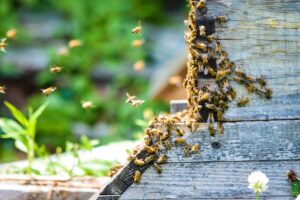Golden algae is wreaking havoc in some Arizona lakes, causing fish to die and float on the surface. As we enter the hottest months of the year in Arizona, this phenomenon has become all too common. But what exactly is golden algae, and why is it causing such devastation?
Golden algae, scientifically known as Prymnesium parvum, is a single-celled organism that thrives in warm, nutrient-rich waters. These conditions are often present in Arizona lakes during the summer, creating an ideal environment for golden algae to flourish. When the algae blooms, it releases toxins that are harmful to fish and other aquatic organisms.
The impact of golden algae on fish populations can be devastating. As the algae multiplies and toxins are released, fish begin to experience physiological distress. This can lead to impaired breathing, reduced immune function, and even death. Additionally, the toxins released by golden algae can damage fish gills, further hindering their ability to survive.
To better understand the effects of golden algae, scientists have conducted extensive research and monitoring. One study found that in areas where golden algae blooms occurred, fish populations declined by up to 95%. This drastic reduction in fish abundance not only disrupts the delicate balance of ecosystems but also impacts recreational activities such as fishing and boating.
Efforts to mitigate the impact of golden algae have been challenging. Traditional methods of algae control, such as chemical treatments, have proven ineffective against golden algae. Moreover, these treatments can have unintended consequences, harming non-target organisms and further disrupting aquatic ecosystems.
Researchers are now exploring alternative strategies to combat golden algae blooms. One promising approach involves using beneficial bacteria that can outcompete golden algae for resources, effectively suppressing their growth. Another potential solution is the use of ultraviolet light treatment, which can target and kill golden algae cells without harming other organisms.
In conclusion, golden algae poses a significant threat to fish populations in some Arizona lakes. As we enter the hottest months of the year, it is crucial to be aware of this issue and take steps to protect our aquatic ecosystems. Collaborative efforts between scientists, policymakers, and the public will be key in finding innovative and sustainable solutions to mitigate the impact of golden algae. By working together, we can ensure the long-term health and vitality of our precious lakes and their inhabitants.









